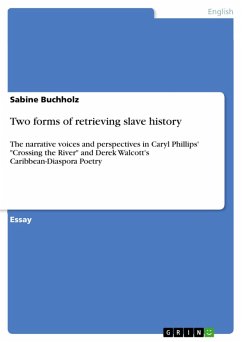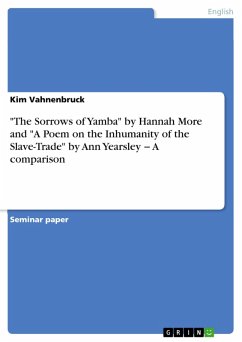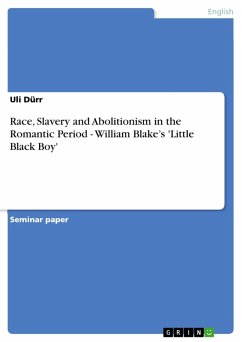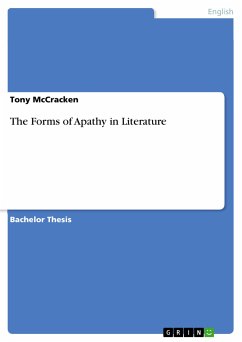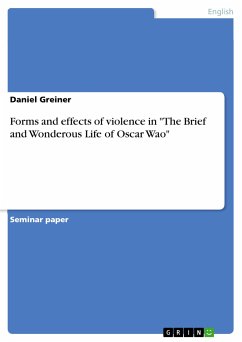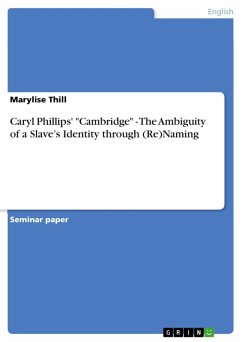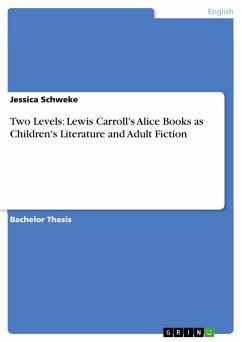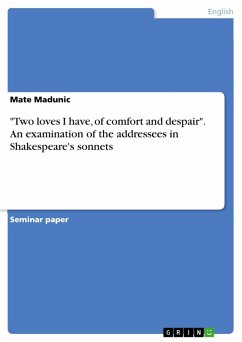Essay from the year 2005 in the subject English Language and Literature Studies - Literature, grade: 2,0, University of Southampton (University of Southampton - School of Humanities: Film Studies), course: The Literature of the Black Diaspora, language: English, abstract: Fictional literary forms are generally divided into three genres, namely poetry, prose and drama. All these stylistic ways of transforming thoughts into (written) language have their own distinctive hallmarks and can, thus, have very different effects on the reader/ the audience. Whereas prose narrations are usually read by a sole reader, drama is supposed to be performed on stage, and poetic texts live especially on their orality. There are, unquestionably, many more discrepancies between these three fictional archetypes; they take for instance advantage of dissimilar narrative voices. This leads to the assumption that a literary writer must have certain reasons for choosing one of all possible forms of fiction; he, moreover, must aim at achieving a special effect on his audience employing a particular style with specific perspectives. The diverse forms of literature often digest identical topics always dealing with them in a unique way, which gives literature an enormous variety. The same applies to one special kind of literature, which is in the centre stage of this essay: slave literature about the experience and history of the Black Diaspora. Starting from these considerations, my intention is to analyse divergent works of two specific contemporary black diasporic writers, plus their special forms of employing narrative voices and perspectives in order to retrieve the history of slavery: Caryl Phillips postmodernist prose narrative Crossing the River and the Caribbean-diasporic poetry of Nobel Prize Winner Derek Walcott. How do the two of them use narrative devices in their disparate forms of art, prose and poetry? This is to be examined in the course of this essay.
Dieser Download kann aus rechtlichen Gründen nur mit Rechnungsadresse in A, B, BG, CY, CZ, D, DK, EW, E, FIN, F, GR, HR, H, IRL, I, LT, L, LR, M, NL, PL, P, R, S, SLO, SK ausgeliefert werden.

